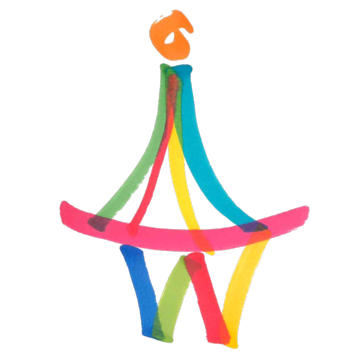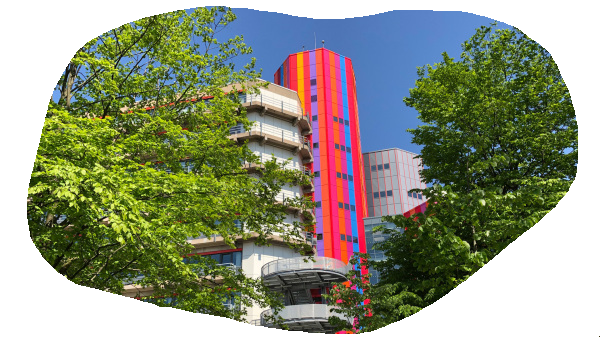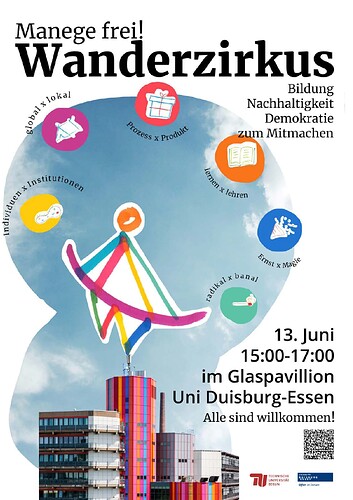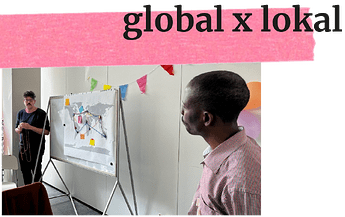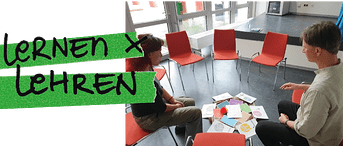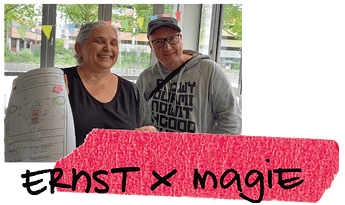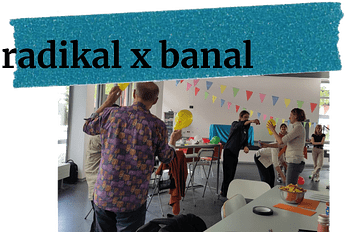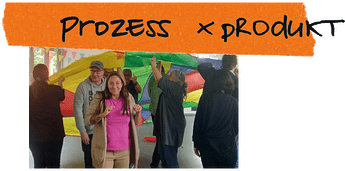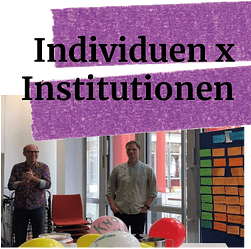A Traveling Circus Stands Better on Two Legs
total x plural
From June 12 to 14, 2024, the University of Duisburg-Essen invites everyone to the second installment of the traveling circus for the summer semester. With a troupe now 40 strong, the event promises an intensive exchange where participants learn from one another how to enrich university teaching—be it within specialized disciplines, through interdisciplinary approaches, digitally or analogously, integrated into the curriculum or beyond.
![]() Wandering Circus - 2nd Station: Total x Plural
Wandering Circus - 2nd Station: Total x Plural ![]()
![]() June 12-14, 2024
June 12-14, 2024
![]() University of Duisburg-Essen - Essen Campus
University of Duisburg-Essen - Essen Campus
This publication provides all the details about the second stop of the traveling circus:
Invitation
Essen has set the table for 40 participants! Travel expenses will be covered once again. While 30 spots are already filled, 10 remain open for new circus members.
In Essen, we’ll gather under the motto „Totally Plural.“ We’ll break into small groups („tents“) to work on various performances exploring the following topics:
![]()
![]() global x local
global x local
How does sustainability bridge the gap between global and local? While we often frame the challenges and goals of sustainability in a global context, the reality is that sustainable education is always a local endeavor. It happens in a specific place, at a particular moment, with distinct individuals. Even with globally oriented guidelines, education is rooted in the everyday and the tangible. Faced with this dichotomy, we must consider how to design education that addresses not just the global, but also the mundane and the earthly.
![]()
![]() earnestness x magic
earnestness x magic
The challenges we face can, or even must, be intimidating — at least, that’s what the rhetoric in reports and discussions often suggests. Yet, fear paralyzes us and prevents action, which is the last thing we need when tackling various sustainability tasks. Joy, fun, and humor are powerful catalysts for effective action; they open the door to magical moments and foster empowerment. But how do we, like clowns, balance creating these moments without losing sight of the seriousness of the situation?
![]()
![]() learning x teaching
learning x teaching
In the Learning & Teaching tent, we will explore event formats and teaching/learning methods related to sustainability and education for sustainable development. What resonates with the target audience, raises awareness, and motivates them to apply what they’ve learned? What roles do learners and educators play in this process? And how can we support one another in enhancing teaching programs across different educational institutions?
![]()
![]() individuals x institutions
individuals x institutions
What does the „x“ between individuals and institutions signify in the context of sustainability and democracy, and in teaching and learning? Does the „x“ represent demanding, encouraging, or challenging relationships? Does it indicate support or hindrance, part versus whole, or something else?
Do these answers vary between individuals and institutions? What role do universities play in society, and how should their members act in relation to this role? What concepts exist for fostering critical, constructive, and consistent cooperation between individuals and institutions?
What recommendations can we offer to those interested in sustainability and democracy, and what advice is there for those who are not?
![]()
![]() process x product
process x product
We will explore the nexus of sustainability by examining ecological distribution conflicts through the lens of Political Ecology. Central to this discussion is the tension between process and product. In a world marked by economic and demographic expansion, we ask: Who benefits from the increasing consumption of resources, and who bears the burdens? Through concrete examples, we will highlight the different „languages of valuation“ that underlie these conflicts, ranging from monetary claims to considerations of ecological, ritual, or cultural significance. At the core of our inquiry is the question of power: Who has the authority to determine which valuation languages hold relevance in these contexts? This exploration prompts deep reflections on the dynamic interplay between sustainability, power dynamics, and the process-product dichotomy.
![]()
![]() radical x trivial
radical x trivial
When does education truly become radical, and when does it merely appear so? Could it ultimately be just trivial? Can seemingly trivial education actually drive meaningful change? What holds us back from pursuing truly radical education? In this segment, we delve into these questions, aiming to develop an understanding of education that transcends mere intention. Our approach is rooted in inclusion, care, persistent curiosity, and mindful inquiry to foster sustainable change.
The unique charm of this traveling circus performance lies in the collaboration between educational, democratic, and sustainability advocates—individuals who likely never imagined coming together to create something. This unlikely partnership promises an experience that is both unexpected and enriching for our audience.
If you’re ready to dive into the world of the traveling circus, without safety nets or double layers, contact us and join our journey at info@wanderzirkus.org.
Program
Programm - Essen - Wanderzirkus.pdf (549,7 KB)
Report
![]() This report was collaboratively created, with coordination by Lena Engel. Thank you! Here are some excerpts. For more details, feel free to reach out via email: info@wanderzirkus.org.
This report was collaboratively created, with coordination by Lena Engel. Thank you! Here are some excerpts. For more details, feel free to reach out via email: info@wanderzirkus.org.
It’s a misconception that the Global North is inherently „global“ and the Global South is inherently „local.“ This assumption must be challenged, especially in the context of environmental racism.
„Most importantly, we wanted to demonstrate that both sustainability and democracy cannot be fully understood without recognizing how the global is shaped by the interconnectedness of different places. This underscores that universal or general concepts of sustainability or democracy cannot be applied uniformly across all contexts.“
„Under Lea’s guidance and moderation, we engaged in a ‚philosophical conversation‘ about what constitutes a world worth living in. Through sharing personal views and opinions, we quickly identified common sustainability-related aspects and criteria that could improve our world. This experience led us to reflect on the potential of the ‚philosophical conversation‘ in the context of Education for Sustainable Development (ESD).“
„Guided by Traugott and Birgit, we explored the reasons that hinder us from living sustainably or acting in line with our values (the attitude-behavior gap). In pairs, we used various craft materials to ‚visualize‘ these obstacles—such as laziness, convenience, time pressure, unequal wealth distribution, and isolation. The outcome was ‚Nachaltikules,‘ a superhero designed to help people overcome this gap.“
„This group also aimed to redefine the term ‚radical‘ with a positive connotation. The word ‚radical‘ comes from the Latin ‚radix,‘ meaning ‚root.‘ Thus, it signifies addressing the root of a problem and tackling it sustainably.“
Our group reflected on how to counter the prevailing developmentalism—the ideologically driven push for „development“ accelerated by technology and finance and extended to many parts of the world. We explored alternative visions and practices for achieving a good life for all, drawing from popular environmental movements and Latin American political ecology.
Who holds the power in sustainability—institutions or individuals? This dilemma emerged as we considered the role of a teacher who has the freedom to design their own courses while also serving as an evaluator within the institutional framework. We compiled our case studies on a pinboard, which sparked a lively discussion about the tension between our personal identities and the institutional constraints we face, as well as a comparison with established models.
